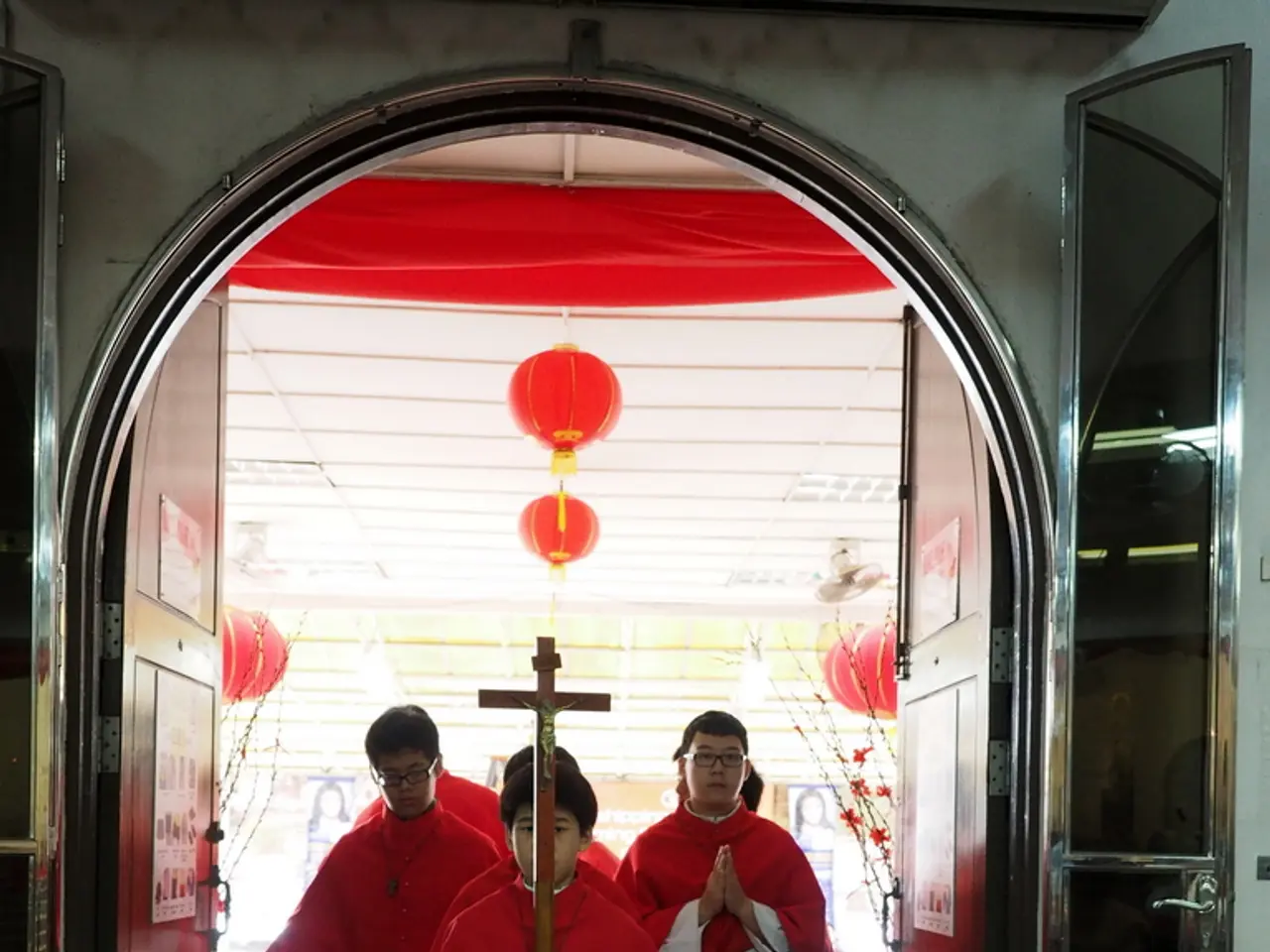Filmmaker Oliver Laxe crafts unconventional movies to stimulate deep self-reflection
In the desolate landscapes of southern Morocco, director Oliver Laxe's latest film, Sirat, unfolds a profound spiritual and existential journey. This gripping tale follows a father and son as they venture into a remote desert rave, searching for their missing daughter and sister, Mar.
Sirat, named after the Islamic mythical bridge that symbolises the fine line between life and death, mirrors the characters' perilous physical and spiritual crossing. The film's hypnotic visuals and evocative soundtrack immerse viewers in this liminal space, heightening the sense of existential risk and spiritual trial.
Laxe, who has a deep affinity for 'rave' culture, uses Sirat to critique society's fear of death. The film portrays death not as a source of fear but as a necessary frontier of self-discovery, transformation, and revelation. The characters' relentless search in the inhospitable desert and endless raves symbolises humanity's broader denial and struggle with the unknown aspects of death.
Sirat has received mixed reviews, with some viewing it as a sign of hope and others of despair. However, its intended purpose is to challenge viewers to reflect on their own fears about death and the unknown. The film aims to bring viewers "closer to themselves" and confront them with the fear of death.
The film was awarded by the jury in the official section of the Cannes Film Festival, acknowledging its unique and thought-provoking narrative. Despite its dry, arid, and sober tone, Sirat is anything but dull. It is a hard film that portrays and criticises a "very thanato-phobic" society, extremely afraid of death.
Laxe believes that the toxic and escapist side of 'rave' culture exists in all dimensions of society. He comments that Europeans are idealised as balanced but in reality are wounded and humble. He reflects that life forces us to do the work through crisis when we don't do it on time.
Sirat uses epic narratives, such as the Epic of Gilgamesh or the journeys of King Arthur in search of the Holy Grail, as a thematic backdrop. The film transcends the author and is intended to be felt rather than understood. It is a testament to Laxe's belief that the transmission of wisdom and the level of acceptance and detachment experienced through the death of a child is something noble and worthy.
In conclusion, Sirat is a thought-provoking film that challenges viewers to confront their fears about death and the unknown. Through its narrative and symbolism, it probes profound philosophical questions about life, death, the human spirit, and the creation of meaning in the face of loss.
The thought-provoking narrative of Sirat critiques society's fear of death, using 'rave' culture as a backdrop to symbolize humanity's denial and struggle with the unknown aspects of death. Meanwhile, the film's success in the 'movies-and-tv' industry, such as its award at the Cannes Film Festival, highlights its capacity to spark deep introspection and challenge viewers about their own mortality fears.






